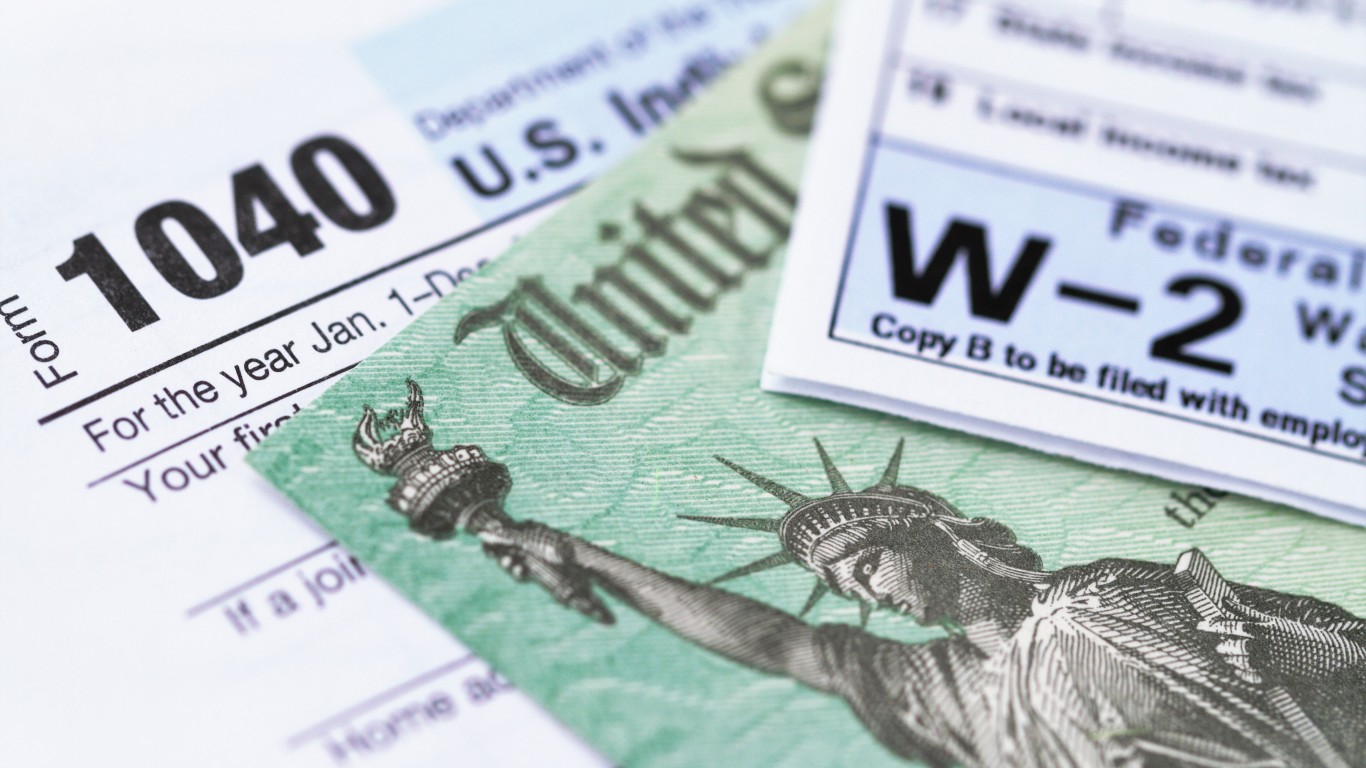retirement
The Most Important Thing to Know If You're Expecting an October Social Security Check

Published:

The holiday buying season will be upon us before you know it. October for some people is a time to start buying holiday gifts before the rush hits. Those drawing Social Security will be particularly interested to know when to expect their benefit checks. We’ve consulted the Social Security Administration to get you the information you need to plan ahead.
24/7 Wall St. Insights

Social Security is a federal program started during the Great Depression to relieve poverty for retired people, people with disabilities, and their survivors. It was envisioned as a social insurance program funded jointly by workers and their employers. Social Security should not be mistaken for some kind of “government handout,” but as a trust fund drawn from the hard-earned salaries of working Americans and held on their behalf safely by the government to return to them over the years of their retirement.

The news is full of alarmist stories about Social Security running out of money by 2035 or so. Here’s why you should not worry about that:

Social Security is the largest program of the U.S. government, costing about $1.24 trillion a year. 99% of that money goes directly into benefits for the American public. About 70.67 million people draw an average of $1,767.03 in monthly Social Security checks. The U.S. Social Security Administration also oversees other programs that cover not only retirement but also disability, survivors’ benefits, and supplemental income for people of low income.

The Social Security Administration provides a Schedule of Social Security Benefit Payments. The date you receive your payment is based on what day of the month you were born. There are different payment dates for people born on the 1st through the 10th, the 11th through the 20th, or the 21st through the 31st. If you don’t get your benefit check by the anticipated date, wait three days, then contact the Social Security Administration.

Retirement benefits can start as early as age 62 or as late as age 70. In most cases, it is to your advantage to wait as long as possible to start drawing your monthly benefits, as the amount you receive each month increases the longer you wait to retire (up to age 70). Spouses or dependents of a deceased worker can draw survivors benefits based on how much the deceased has paid into the system. Disability benefits are available to people who cannot work for a year or more due to a disability.
The payment date for these benefits depends on the day of the month you (or your deceased loved one) were born:

Supplemental Security Income (SSI) is a benefit for people of any age with a disability as well as adults 65 and older living on a very restricted income. It provides financial assistance for basic needs like housing, food, medicine, and clothing. These benefit payments go out on the 1st of each month. But if the 1st happens to be on a Saturday or Sunday, the payment date is moved back to the first Friday before the 1st of the month. This month the regular payment goes out on October 1.

There are two situations that can create an exception in your benefit payment dates:
If either of these apply to you, your SSI will be paid on the 1st and Social Security on the 3rd. If either of these falls on a weekend, it will be paid on the preceding Friday. These are the dates in October for these situations:

Back in the good old days, Social Security income was tax-free, but starting in the 1980s the federal government began taxing it for people above a certain income threshold. The IRS adds your adjusted gross income, your tax-exempt interest income, and half of your annual Social Security benefit for the year. If that figure is higher than $25,000 for an individual or $32,000 for a married couple, some of your benefits will be taxable. These rules also apply to survivors benefits and disability benefits, but not to Supplemental Security Income. Nearly half of all beneficiaries are subject to some federal taxation. The funds collected go back into the Social Security system to pay benefits to future retirees.
At the state level, most states do not tax Social Security, but these states do: Colorado, Connecticut, Minnesota, Montana, New Mexico, Rhode Island, Utah, Vermont, and West Virginia. These tax funds go into the general state budgets. Each state has different income thresholds and exceptions that can make taxation less of a burden for some retirees. Thankfully, Nebraska and Missouri stopped taxing Social Security as of 2024. Hopefully, other states will follow suit.

The Social Security Administration provides the opportunity to create a free “my Social Security” account where you can keep track of your benefits, change your address, set up or change the account you use for direct deposit, or request a replacement Social Security card. If you haven’t retired yet, you can use this account to estimate what your future benefits will be, see your Social Security statement, or check on your application status. The SSA says it’s quick, easy, and secure. Check it out and find out for yourself.
Start by taking a quick retirement quiz from SmartAsset that will match you with up to 3 financial advisors that serve your area and beyond in 5 minutes, or less.
Each advisor has been vetted by SmartAsset and is held to a fiduciary standard to act in your best interests.
Here’s how it works:
1. Answer SmartAsset advisor match quiz
2. Review your pre-screened matches at your leisure. Check out the advisors’ profiles.
3. Speak with advisors at no cost to you. Have an introductory call on the phone or introduction in person and choose whom to work with in the future
Thank you for reading! Have some feedback for us?
Contact the 24/7 Wall St. editorial team.